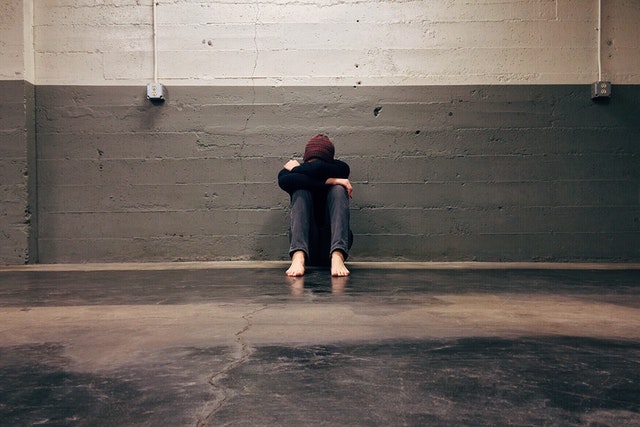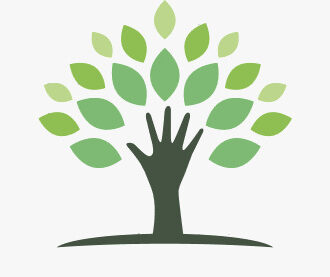Depression, often known as major depressive disorder or clinical depression, is a common but dangerous mood illness that affects approximately one in every 100 people. It has a detrimental effect on your feelings, thoughts, and ability to handle daily activities such as sleeping, eating, and working effectively.
While depression seems to be a very trending word online, the truth is that it has always been there in the history of mankind. The worst part is that it can also strike people of all ages – however, the most vulnerable ones are adolescents and those in their 30’s.


Depression is a very common disorder in people across the globe; however, it is more prevalent in developed countries like America and the United Kingdom and in developing countries like India, China, and Pakistan.
Global statistics 2020 on depression
According to the data released by the World Health Organization in the year 20202, depression and anxiety disorders are more common than you think. As per that study, more 264 million people across the world suffer from depression.
Apart from this, people of a certain race are also more likely to get depressed than other races.
Based on the statistics of a study conducted in 2020 on Race/Ethnicity among Anxiety (GAD-7) and Depression (PHQ-9) Screeners, depression rate does vary with race. White(non-Hispanic) were the most affected with 50.6% of them suffering from depression at least once in their lifetime, followed by Asian or Pacific Islander with 17.21%. Native American or American Indian races scored the least with 1.1%. So, it is apparent that mental health issues are indeed related to race.
The analysis is based on the 1,093,519 screens conducted for anxiety and depression reported from January 1st to December 31st, 2020.
Women are 2X more likely to be affected by depression
Depression is twice as common in women as it is in men, according to research. Approximately 20% of women will suffer from at least one episode of depression over their lifetime, according to the American Psychological Association. Women’s greater prevalence of depression may be explained by biological, life cycle, hormonal, and psychological factors that are specific to women only.
During childhood and adolescence, depression affects both boys and girls at roughly the same rates. Girls, on the other hand, are more likely than males to suffer from depression by the time they reach puberty. In addition to the biological and hormonal changes that occur throughout puberty, the dramatic increase in prevalence of depression among adolescent girls is likely a result of these changes.
Herbs that can help you combat stress and sleep disorders
Using herbs for anxiety and depression treatment has been a way of living for our ancestors. Some herbs that help you live a blissful life are –
Ashwagandha: The stress-relieving properties of ashwagandha makes it a magical herb for treating stress, depression, and anxiety. When taken as a supplement, the medicinal herb appears to assist in lowering cortisol levels, a hormone produced by your adrenal glands in response to stress. Cortisol levels were shown to be reduced by 11–32 percent when taken daily for 1–3 months at doses ranging from 125 mg to 5 grams per day.
Shankapushpi: According to Ayurveda, Shankhpushpi is beneficial in calming the brain and relieving stress as well as anxious feelings. Because of its Medhya (improves intelligence) feature, it also has the added benefit of serving as a brain tonic, which helps to increase memory. If you want to improve your memory and focus, you can take Shankhpushpi powder mixed with warm milk or water.
Brahmi: Brahmi is beneficial in that it has the ability to modify the activity of specific enzymes that are involved in the stress response. As a result, it has been shown to be effective in lowering stress and anxiety. Additionally, it improves your mood and lowers your cortisol level (stress-causing hormone). Because it raises the level of serotonin in the body, it has stress-relieving properties.
Chamomile : This daisy-like bloom is associated with calmness, making it one of the most well-known stress-relieving teas available today. Chamomile assists with sleep and anxiety because it contains apigenin, a chemical that has some of the same effects as benzodiazepines, an anti-anxiety medicine. In addition, chamomile tea can help to reduce involuntary muscle spasms that may occur just before menstruation begins.
As stress causes lack of sleep, taking these herbs in the form of potions, powder, and even gummies can help you overcome insomnia and depression naturally.
Bottomline
While stress, anxiety, depression, and sleeplessness are usually seen as different disorders, they are all interconnected. When detected early, these mental health issues can be effectively managed by antidepressant medications, therapies, herbs, and a healthy, active lifestyle. So, if you or anyone you know suffer silently from depression-related disorders, seek medical attention at the earliest and stand by them in all possible ways.



